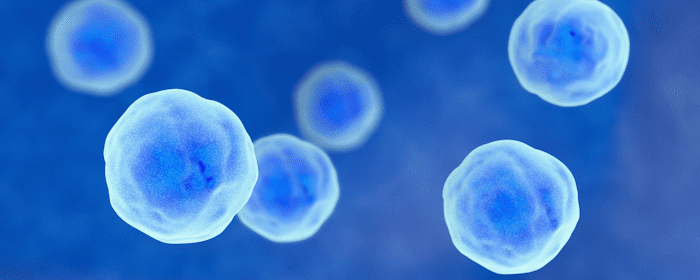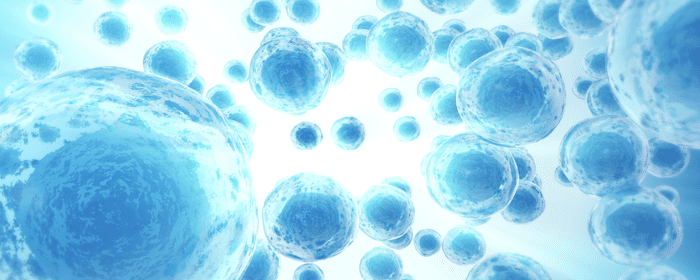
by Stemedix | May 29, 2023 | COPD
In this article, we are going to outline exactly what COPD is and the best treatment for COPD. COPD stands for chronic obstructive pulmonary disease. It is a chronic respiratory disease characterized by persistent airflow limitation that makes it difficult to breathe properly. COPD primarily affects the lungs and is usually caused by long-term exposure to irritating substances such as cigarette smoke, air pollution, and occupational dust and chemicals.
The two main conditions included under the umbrella term COPD are chronic bronchitis and emphysema:
Chronic bronchitis: This condition involves inflammation and narrowing of the airways, leading to increased production of mucus and persistent cough. Coughing and excessive mucus production typically last for at least three months per year for two consecutive years.
Emphysema: This condition involves damage to the air sacs (alveoli) in the lungs, which results in the loss of their elasticity. As a result, the air sacs are unable to fully deflate, leading to difficulty in exhaling air. This leads to air trapping in the lungs and reduced oxygen exchange.
The common symptoms of COPD include shortness of breath, chronic cough, wheezing, chest tightness, and increased mucus production. These symptoms tend to worsen over time, especially with continued exposure to respiratory irritants. COPD is a progressive disease, meaning it gradually worsens over time and can significantly impact a person’s quality of life.
Diagnosis of COPD typically involves a combination of medical history evaluation, physical examination, lung function tests (such as spirometry), and imaging tests like chest X-rays or CT scans. Early detection and diagnosis are crucial for effective management and treatment.
What Treatments Help Manage COPD?
The best treatment for chronic obstructive pulmonary disease (COPD) depends on the individual’s specific condition and its severity. COPD is a chronic respiratory disease characterized by airflow limitation and includes conditions such as chronic bronchitis and emphysema. While there is no cure for COPD, various treatment options are available to manage symptoms, improve lung function, and enhance overall quality of life. Here are some commonly used treatments:
- Medications: Bronchodilators are frequently prescribed to relax the muscles around the airways, making breathing easier. They can be short-acting or long-acting, and examples include beta-agonists and anticholinergics. Inhaled corticosteroids may be used to reduce airway inflammation in some cases.
- Oxygen therapy: Supplemental oxygen may be necessary if blood oxygen levels are low. Oxygen can be administered through nasal prongs, masks, or portable devices, as prescribed by a healthcare professional.
- Pulmonary rehabilitation: This is a structured program that combines exercise training, breathing techniques, and education to improve lung function, increase exercise tolerance, and enhance quality of life. It may involve a team of healthcare professionals, such as physiotherapists, respiratory therapists, and dietitians.
- Lifestyle changes: Quitting smoking is vital for slowing the progression of COPD. Avoiding exposure to environmental irritants, such as secondhand smoke and air pollution, is also important. Eating a healthy diet, staying physically active (within one’s limitations), and maintaining a healthy weight can support overall lung health.
- Vaccinations: Annual flu vaccinations are recommended for individuals with COPD to prevent respiratory infections. The pneumococcal vaccine is also advised to protect against certain strains of pneumonia.
- Surgical interventions: In severe cases of COPD, surgical options like lung volume reduction surgery (LVRS) or lung transplantation may be considered. These options are typically reserved for carefully selected individuals who meet specific criteria.
It is crucial for individuals with COPD to work closely with their healthcare providers to develop an individualized treatment plan based on their specific needs and circumstances. Regular follow-up appointments and adherence to the prescribed treatment are essential for effective management of COPD.
Regenerative Medicine for COPD
Regenerative medicine is a new area of medicine that holds potential in the field of COPD research and treatment. Regenerative medicine, also known as stem cell therapy, aims to restore, repair, or replace damaged tissues. While regenerative medicine is not currently considered traditional treatment for COPD, here are some ways it may potentially contribute to COPD management:
Stem cell therapy: Stem cells have the ability to develop into different types of cells in the body. Researchers are exploring the use of stem cell therapy, particularly mesenchymal stem cells (MSCs), as a potential treatment for COPD. MSCs have shown promise in reducing inflammation and promoting tissue repair in preclinical and early clinical studies. These stem cells can be derived from different sources, such as bone marrow or adipose tissue, and can be delivered directly into the lungs or systemically.
Mesenchymal stem cell (MSC) therapy is a potential regenerative medicine approach. MSCs are a type of adult stem cell that can differentiate into various cell types, possess anti-inflammatory properties, and have the ability to modulate the immune response. These characteristics make them attractive for potential therapeutic applications in COPD. Here’s an overview of MSC therapy for COPD:
- Mechanisms of action: MSCs have shown several mechanisms of action that can potentially benefit individuals with COPD. They can reduce inflammation in the lungs, promote tissue repair and regeneration, modulate immune responses, and secrete factors that can enhance the local environment and support healing.
- Sources of MSCs: MSCs can be derived from various sources, including bone marrow, adipose tissue (fat), umbilical cord tissue, and other tissues. Each source has its advantages and disadvantages, and research is ongoing to determine the most effective and safe sources of MSCs for COPD treatment.
- Administration of MSCs: MSCs can be delivered to the lungs through different routes, including intravenous (IV) infusion, inhalation, or direct injection into the lung tissue.
- Research and clinical trials: Preclinical studies and early-phase clinical trials have demonstrated some promising results for MSC therapy in COPD. These studies have shown improvements in lung function, reduction in inflammation, decreased airway remodeling, and enhanced exercise capacity.
While there is no cure for COPD, various treatment options are available to relieve symptoms, slow disease progression, and improve quality of life. These treatments often involve a combination of medications, pulmonary rehabilitation, oxygen therapy, and lifestyle modifications such as smoking cessation and avoiding respiratory irritants.
It is important for individuals with COPD to work closely with healthcare professionals to develop a personalized treatment plan and regularly monitor their condition to effectively manage COPD and minimize its impact on daily life.

by admin | May 24, 2023 | Stem Cell Therapy, Mesenchymal Stem Cells, Stem Cell Research, Stroke
With nearly 15 million people affected worldwide each year, stroke continues to be the most prevalent cerebrovascular disease. Responsible for over 5 million deaths and another 5 million individuals suffering long-term disabilities, stroke also is the leading cause of mortality and morbidity worldwide.
Although there have been significant advances in both pharmacological and surgical therapies designed to treat the effects of stroke, effective therapy remains limited and primarily focused on managing the symptoms associated with a stroke rather than treating the causing factors or preventing the stroke at the onset.
Recently regenerative medicine, also known as stem cell therapy, and specifically mesenchymal stem cell (MSC)-based therapy has been identified as a potentially effective strategy for a wide range of diseases and health conditions, including stroke.
In this review, Li et al. examine current preclinical and clinical data from trials using MSCs in the treatment of stroke, the mechanisms underlying MSC-based therapy for stroke, and the challenges associated with the timing and delivery of MSCs.
Initial preclinical studies of the application of MSCs in the treatment of stroke demonstrated that transplantation of MSCs following ischemic stroke promoted improvement of cerebral function protected the ischemic neurons, and repaired brain damage. However, these studies were conducted in young and healthy subjects and failed to factor in the presence of comorbidities, such as diabetes and hypertension, more commonly observed in ischemic stroke patients.
Considering that 75% of strokes occur in the elderly and/or those with the previously mentioned comorbidities, the authors of this review focused their review on studies that incorporated these two factors into their trials.
While these preclinical studies of MSC-based therapy for stroke demonstrated promising results, including improved blood-brain barrier integrity, increased white matter remodeling, and improved neural repair, the authors point out that there has been a limited number of preclinical studies conducted and call for additional preclinical studies specifically utilizing the comorbidity model.
Although treatment of stroke using MSCs has been established to be safe and feasible in phase I and II clinical trials, there have been mixed findings as to the therapy’s efficacy. As a result of these varied findings, the overall efficacy in the treatment of ischemic stroke remains controversial. The authors consider several reasons for the inconsistency of results observed in these trials, including the varied number of patients, doses, and type of cell delivery, the timing of the cell therapy, and the treatment modalities used in these trials; the authors also call attention to the different locations, extent, and severity of lesions used in these trials.
As a result of the inconclusive results surrounding the effectiveness of MSC-based therapy for the treatment of stroke in these clinical trials, the authors call for more optimized and well-designed large-sample multicenter studies to evaluate the therapeutic efficacy of MSCs more thoroughly in ischemic stroke.
While the underlying mechanisms of MSC-based therapy for stroke have not been fully explained or understood, a review of several studies has demonstrated that MSCs protect against stroke through multiple mechanisms, including direct differentiation, paracrine effects, and mitochondrial transfer.
Before MSCs can be widely applied in clinical practice, Li et al. highlight several challenges that need to first be considered. These challenges include determining the optimal time for MSC administration during the acute stroke stages, further understanding the best treatment, conditions, and strategies to maximize the regenerative potential of MSCs, identifying the simplest and safest route of MSC delivery, and identifying the best source of MSCs for stroke treatment.
The authors conclude this review by recommending future preclinical and clinical studies that consider the adoption of a well-designed randomized controlled study design and method rigor and intervention measures to determine the effect of MSC therapy in the treatment of stroke.
Even with considering the above recommendations, MSCs continue to demonstrate exciting potential as a means to protect neurons and improve outcomes and overall quality of life for stroke patients.
Source: “Mesenchymal Stem Cell-Based Therapy for Stroke – NCBI.” 9 Feb. 2021, https://www.ncbi.nlm.nih.gov/pmc/articles/PMC7899984/.

by Stemedix | May 22, 2023 | Multiple Sclerosis, Stem Cell Therapy
When it comes to chronic illnesses, it is very important to understand the nuances and distinctions between different conditions. There are two commonly misunderstood conditions: fibromyalgia and multiple sclerosis (MS).
Although both conditions can cause significant pain and affect a person’s quality of life, they are distinct in their origins, symptoms, and treatment approaches. By exploring the differences between fibromyalgia and multiple sclerosis, we hope to provide clarity and dispel misconceptions.
What Are the Differences?
Fibromyalgia: A Widespread Pain Disorder
Fibromyalgia is a chronic disorder characterized by widespread musculoskeletal pain, fatigue, sleep disturbances, and cognitive difficulties. It affects approximately 10 million people in the United States alone, predominantly women. Unlike MS, fibromyalgia is not an autoimmune disorder caused by physical injury. The exact cause of fibromyalgia is unknown, and there is currently no cure for the condition.
Symptoms and Diagnosis of Fibromyalgia:
The primary symptom of fibromyalgia is chronic pain that is widespread throughout the body, often accompanied by tenderness in specific tender points. Fatigue and sleep disturbances are also prevalent, with individuals experiencing disrupted sleep patterns and waking up feeling unrefreshed. Cognitive difficulties, commonly known as “fibro fog,” can include problems with memory, concentration, and overall mental clarity.
Diagnosing fibromyalgia can be challenging as there are no specific laboratory tests or imaging studies available to confirm the condition. Instead, doctors rely on a combination of clinical symptoms, a thorough medical history, and physical examination to make an accurate diagnosis. The American College of Rheumatology has established criteria, including widespread pain for at least three months and the presence of tender points, to aid in the diagnosis of fibromyalgia.
Multiple Sclerosis: A Complex Autoimmune Disease
Multiple sclerosis (MS), on the other hand, is a chronic autoimmune disease that affects the central nervous system (CNS). It occurs when the immune system mistakenly attacks the protective covering of nerve fibers, disrupting the communication between the brain and the rest of the body. Unlike fibromyalgia, MS is considered an autoimmune disorder, and its exact cause remains unknown.
Symptoms and Diagnosis of Multiple Sclerosis:
MS can manifest in a variety of symptoms that vary widely among individuals. Common symptoms include fatigue, difficulty walking, numbness or tingling in the limbs, muscle weakness, coordination problems, blurred vision, and cognitive impairment. The severity and progression of symptoms can also differ from person to person.
Diagnosing MS is a complex process that often involves multiple tests and evaluations. Doctors may use magnetic resonance imaging (MRI) scans to detect characteristic lesions in the CNS, perform a lumbar puncture to analyze cerebrospinal fluid, and consider the patient’s medical history and clinical presentation. Collaboration between neurologists and other specialists is crucial to making an accurate diagnosis.
What Are the Treatment Approaches?
Since fibromyalgia and multiple sclerosis have distinct underlying causes, their treatment approaches differ significantly. In fibromyalgia management, a multimodal approach is typically recommended. This may include a combination of medications, such as analgesics, antidepressants, and anticonvulsants, along with lifestyle modifications like exercise, stress reduction techniques, and cognitive-behavioral therapy (CBT).
For multiple sclerosis, the focus is on managing symptoms, slowing disease progression, and reducing relapses. Disease-modifying therapies (DMTs) are commonly prescribed to modify the immune response and reduce inflammation in MS. Other treatment options include symptomatic medications for specific symptoms, physical therapy, occupational therapy, and speech therapy to manage any functional impairments.
Regenerative Medicine for Fibromyalgia and Multiple Sclerosis
Regenerative medicine is a field of medicine that focuses on developing and using techniques to repair, replace, or regenerate damaged or diseased cells, tissues, or organs. It involves the use of various biological materials, such as stem cells, growth factors, and tissue engineering, to restore normal function in the body.
Mesenchymal stem cell (MSC) therapy is a specific approach within regenerative medicine that utilizes mesenchymal stem cells, which are a type of adult stem cell. These cells are found in various tissues, such as bone marrow, adipose tissue (fat), and umbilical cord tissue.
MSCs have the ability to differentiate into different cell types, including bone cells, cartilage cells, muscle cells, and fat cells. They also possess anti-inflammatory and immunomodulatory properties, making them particularly promising for therapeutic use.
The therapeutic potential of MSCs lies in their ability to promote tissue repair and regeneration through several mechanisms. These include the secretion of bioactive molecules that stimulate the growth of new blood vessels (angiogenesis), modulation of the immune response, promotion of cell survival, and differentiation into specific cell types.
Stem cell therapy has similar helpful mechanisms for both fibromyalgia and multiple sclerosis, but what are the specific details to each?
How Can Stem Cell Therapy Help Fibromyalgia?
Anti-inflammatory effects: Stem cells have the potential to reduce inflammation in the body, which could help alleviate the symptoms of fibromyalgia. They release a range of anti-inflammatory molecules that can dampen the immune response. These include cytokines such as interleukin-10 (IL-10), which is known for its potent anti-inflammatory properties. IL-10 can inhibit the production of pro-inflammatory cytokines, reduce the activation of immune cells, and promote the generation of regulatory immune cells.
Tissue regeneration: Stem cells can differentiate into various cell types, and they have the ability to regenerate damaged tissues or promote the repair of affected areas by secreting a variety of growth factors, cytokines, and other bioactive molecules that support tissue repair.
Modulation of the immune system: Stem cells help to regulate the immune response, potentially impacting the immune dysfunction often observed in fibromyalgia patients. By reducing inflammation and modulating the immune system, MSCs create a more favorable environment for tissue repair processes to occur.
How Can Stem Cell Therapy Help Multiple Sclerosis?
Immunomodulation: Stem cells have immunomodulatory properties, meaning they can regulate and modify the immune response to potentially help reduce the inflammation and damage associated with MS. They can suppress excessive immune system activity, including the inflammatory response directed against the myelin sheath.
Anti-inflammatory effects: Stem cells have been shown to release anti-inflammatory molecules and factors and can dampen the inflammatory response and promote an environment that is less damaging to the central nervous system (CNS).
Promotion of tissue repair and regeneration: Stem cells have the ability to differentiate into various cell types, including neuronal and glial cells and may contribute to the repair and regeneration of damaged tissue. Additionally, MSCs can produce growth factors and other molecules that support the survival and growth of existing neurons and oligodendrocytes.
Modulation of autoimmune response: In MS, the immune system mistakenly attacks the myelin sheath, leading to nerve damage. MSCs may help modulate the autoimmune response by suppressing autoreactive immune cells and promoting the development of regulatory T cells (Tregs). Tregs play a crucial role in maintaining immune tolerance and preventing excessive immune reactions.
Neuroprotection: MSCs may exert neuroprotective effects by reducing oxidative stress, promoting the production of neurotrophic factors (such as nerve growth factor and brain-derived neurotrophic factor), and inhibiting cell death pathways. These actions can help protect neurons and prevent further damage to the CNS.
Those who may have symptoms of either fibromyalgia or multiple sclerosis should see their primary specialist to have appropriate diagnostic testing completed. This will best determine what therapeutic options they have to manage their condition and promote a healthier quality of life. If you would like to learn more about treatment options for either MS or Fibromyalgia, contact us at Stemedix today!

by admin | May 17, 2023 | Stem Cell Therapy, Kidney Disease, Mesenchymal Stem Cells, Stem Cell Research
Ischemic kidney diseases are serious health issues that lead to irreversible loss of kidney function and are commonly associated with high rates of mortality and morbidity. Many of the conditions captured under the term ischemic kidney disease occur as a result of decreased glomerular filtration rate (GFR) caused by vasoconstriction or loss of autoregulation. Ischemic kidney disease, or ischemic renal disease, is a contributing factor anywhere between 6% – 27% of end-stage kidney disease and is most common among patients 50 years old or older.
The progression of these types of kidney diseases is often multifaceted and involves complex hormonal-immunological cellular interactions. Since ischemic kidney disease often involves damage that occurs to many different types of cells, the conditions have often been demonstrated to be resistant to conventional therapy.
Considering mesenchymal stem cells (MSCs) provide renal protection, their anti-inflammatory and immunomodulatory properties are of interest in an effort to better understand how they can be therapeutically used to treat and prevent acute kidney ischemia (AKI).
In this review, Zhu et al. examine recent progress in the use of MSC to prevent kidney diseases, with a specific focus on chronic ischemic kidney disease (CIKD).
When used to treat CIKD, MSCs have been found to achieve renal cellular repair in a number of different ways. Initially, and upon infusion, MSCs home to the injury site and release homing receptors, growth factors, and anti-inflammatory cytokines to the injury site. They also release similar microparticles that promote kidney repair through internalization in other cells, allowing for reduced intrarenal inflammation and the promotion of vascular regeneration.
Examining the results of clinical trials exploring the use of MSC to treat CIKD, and considering patients with diabetes mellitus often develop chronic kidney issues, including diabetic nephropathy (DN), the authors believe the beneficial application of the anti-inflammatory, antioxidant, and immunomodulating features of MSC could help in the treatment of DN.
While Zhu et al. highlights the potential of MSCs in the treatment of CIKD in this review, they also identify potential limitations, including the potential for MSCs to form teratoma or other tumors (to date, no direct evidence of kidney tumor formation has been reported) and exactly how long the effects of MSC on kidney protection will last. As a way to address both potential limitations, the authors recommend longer follow-up times to ensure all potential detrimental effects of MSC use in humans are known and accounted for.
The review concludes that while further studies are needed to discern the chief elements of their actions and to define the optimal type (tissue source, preconditioning), dose, and delivery route, MSCs demonstrate remarkable potential for future treatment of ischemic kidney disease.
Source: “Concise Review: Mesenchymal Stem Cell Treatment for Ischemic ….” https://www.ncbi.nlm.nih.gov/pmc/articles/PMC3795813/.

by admin | May 10, 2023 | Stem Cell Therapy, Mesenchymal Stem Cells, Multiple Sclerosis, Stem Cell Research
Multiple sclerosis (MS) is a progressive disease of the central nervous system (CNS) that occurs as a result of the body’s immune system attacking the protective sheath, or myelin, responsible for covering nerve fibers. Characterized by progressive nerve deterioration and damage of the nerve fibers, MS is currently estimated to affect nearly 600,000 adults in the United States.
While a specific cause of MS has not yet been determined, recent findings have suggested interactions between environmental and genetic factors as contributors to the susceptibility to MS.
Current pharmaceutical treatments for MS have demonstrated the ability to slow symptoms associated with MS but have not demonstrated the ability to treat or prevent the disease itself.
Recent studies have identified mesenchymal stem cells (MSCs) as having anti-inflammatory properties that could potentially be an effective therapy option for preventing or managing overactivity and self-antigen attacks by T cells and macrophages that are commonly associated with MS.
As part of this review, Alanazi et al. examined the most relevant clinical trials that utilized MSCs from a variety of sources as part of their investigation into the effectiveness of these stem cells as a potential therapy for MS.
MSCs are able to be easily isolated from multiple sources of the human body, including bone marrow, adipose tissue, umbilical cord, and the placenta. These stem cells have also demonstrated the ability to be expanded in culture media and to be safely utilized as autologous treatment without the risk of rejection.
Regardless of their source, MSCs, in general, have been demonstrated to be highly proliferative, capable of self-renewal, and have immunomodulatory and neurodegenerative effects. In addition, MSCs demonstrate the ability to differentiate and secrete anti-inflammatory factors that allow them to control the progress of autoimmune diseases, including MS.
After examining numerous clinical trials utilizing MSCs from a range of sources, the authors conclude that MSCs – regardless of their source – will all work on inhibiting CD4+ and CD8+ T cell activation, T regulatory cells (Tregs), and macrophage switch into the auto-immune phenotype.
While there are many good sources of MSCs, Alanazi et al. also conclude that previously conducted clinical trials demonstrate umbilical cord MSCs (UCMSCs) to be the best option for the management of Multiple Sclerosis for several reasons. These reasons include faster self-renewal than other MSCs, the ability to differentiate into three germ layers, and the observed ability to accumulate in damaged tissue or inflamed areas.
Additionally, and besides being one of the few MSC sources without ethical concerns, UCMSCs offer benefits from a practical standpoint The separation of MSCs from the umbilical cord is easy and painless, the number of cells collected per unit is high, UCMSC transfusion is not expensive, and UCMSCs have been shown to be very safe to use in this application.
Considering the information presented in this review, Alanazi et al. recommend the clinical use of UCMSCs for regenerative medicine and immunotherapy.
Source: “Mesenchymal stem cell therapy: A review of clinical trials for multiple ….” 23 Aug. 2022, https://pubmed.ncbi.nlm.nih.gov/36092509/.






 St. Petersburg, Florida
St. Petersburg, Florida
